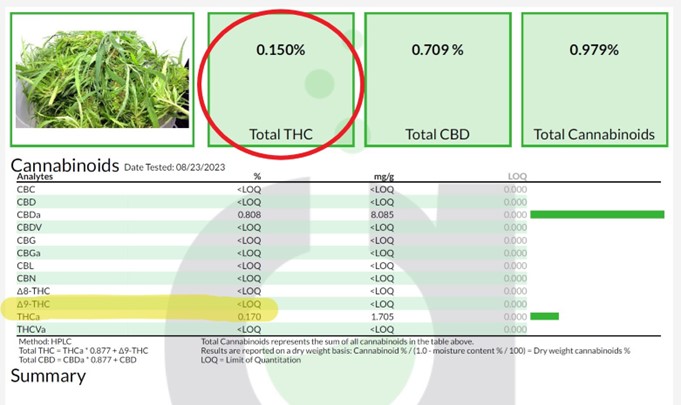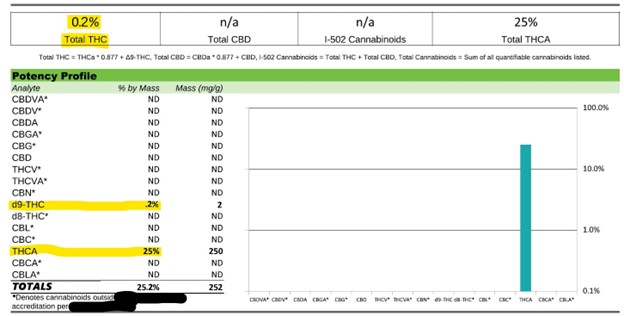Hemp Information
Hemp Information
Hemp includes varieties of Cannabis sativa that are intended for agricultural and industrial purposes. Industrial hemp is commercially grown in virtually every industrialized country in the world, except the United States. The special varieties are grown for their seed and fiber content, as well as byproducts. Industrial hemp fiber is used for textiles, rope, paper and building products. Hemp seed is used for food, feed and oil. Hemp oil is also the basis for pharmaceuticals, cosmetics, inks, lubrication, household detergents, stain removers, varnishes, resins, and paints. Industrial hemp may even prove significant in the biofuel industry.
Hemp Licensing Process
A license must be issued before obtaining seeds, clones or other propagative material. Growers and processors can now submit the following documents to begin the process to obtain a hemp license:
- Criminal History Record Check Request (SFN 60688)
- 2 sets of fingerprints
- Hemp License Application (SFN 58476)
- Hemp Processor License Application (SFN 61613)
- $40.00 non-refundable check or money order made out to the North Dakota Department of Agriculture as payment for the background check
- Appropriate Hemp License Fee
After completing these forms mail them to:
North Dakota Department of Agriculture
Plant Industries Division
600 E Boulevard Ave, Dept 602
Bismarck, ND 58505-0020
License fees
Grower fees will be based on the number of lots grown. A lot is defined as a contiguous area in a field, greenhouse, or indoor growing structure containing the same variety or strain of hemp throughout.
| Number of Lots | License Fee |
| 1 | $100.00 |
| 2 | $200.00 |
| 3 | $300.00 |
| 4+ | $350.00 |
Processor license fee: $200
Interested parties can also subscribe to our Industrial Hemp List Serve below. This list serve will keep you up to date on changing rules, program updates and industry news.
Apply For a Hemp License Online
A step-by-step guide may be found under Related Resources below.
Purchasing Seeds or Other Propagative Material
Buying International Seed
The regulations for importing hemp seed into the U.S. have recently changed. This means that seed can be brought into the country without a DEA Import Permit. There may be other requirements for importing seed; please contact the seed distributor for more information.
Buying Domestic Seed
If a grower would like to purchase domestic seed, seed can be purchased and moved into North Dakota from any state; however, we urge caution in making purchases from a reputable source and that the variety is known to have Total THC levels below 0.3%. Growers are not required to purchase certified seed. There were a few varieties of certified hemp seed grown in North Dakota last year. Please contact the North Dakota State Seed Department for information on these varieties.
Buying Hemp Clones
Clones or young hemp plants may be brought into the state. There are no additional requirements.
Selling Hemp Seeds
The Hemp Program does not require any licenses for selling seeds. Seed dealers will need to contact North Dakota State Seed Department.
Hemp Pilot Program
Federal law, specifically the Controlled Substances Act (CSA), 21 U.S.C. § 801 et seq, continues to prohibit the possession, cultivation, processing, or distribution of industrial hemp except for the limited purpose of agricultural or academic research conducted by a state department of agriculture or by an institution of higher education. 7 U.S.C. § 5940.
To avoid being in violation of Federal criminal law, a North Dakota industrial hemp pilot producer must be licensed in the state of ND and: (1) be part of an agricultural or academic research program conducted by the North Dakota Department of Agriculture or by an institution of higher education; and/or (2) obtain annually a registration issued by the DEA.
The North Dakota Department of Agriculture (NDDA) created the Industrial Hemp Research Pilot Program to research the growth, cultivation, and marketing of industrial hemp in North Dakota. The purpose of the pilot program is to increase the understanding of how industrial hemp fits into the current agricultural landscape, and investigate how it may contribute to the economy of North Dakota.
2020 NDDA Industrial Hemp Pilot Program Research Summary
2019 NDDA Industrial Hemp Pilot Program Research Summary
2018 NDDA Industrial Hemp Pilot Program Research Summary
2017 NDDA Industrial Hemp Pilot Program Research Summary
2016 NDDA Industrial Hemp Pilot Program Research Summary
Subscribe to Hemp List Serve
Hemp Products Fact Sheet
Allowed Hemp Products
- Hemp processes through retting or other processing such that it is a suitable fiber for textiles, rope, paper, hempcrete or other building or fiber materials
- Cured flower that has not been treated with any extracted cannabinoids
- Hemp seed processed such that it is incapable of germination and processed such that is suitable for human consumption
- CBD and CBG products that are:
- Broad Spectrum or,
- Full Spectrum or,
- Isolate and,
- Have a total THC level not to exceed and amount determined by the Ag Commissioner
Prohibited Hemp Products
- Inhalants created by extracting compounds from hemp (vapes and vape cartridges)
- Any product containing chemically derived cannabinoids such as:
- Delta-8 THC
- THC-O Acetate
- THC-O
- HHC
- THCP
- Dietary supplements
- Products with medical claims
- Any product deemed psychotropic by the Ag Commissioner
Hemp Retailer Frequently Asked Questions
- Are all CBD products legal in North Dakota?
- CBD products are legal in North Dakota, but there are restrictions on altered products. CBD products must be full spectrum, broad spectrum, or isolate products.
- Can I sell vapes made from hemp extracts?
- Vapes from hemp extracts are not legal in North Dakota. North Dakota Century Code bans: “A chemical compound extracted from hemp used to formulate, process, or otherwise make an inhalant.” This includes vape carts and disposables for any cannabinoids derived from hemp.
- What types of hemp products can I sell in North Dakota?
- Any hemp product that has Food and Drug Administration: Generally Recognized as Safe status such as: hemp oil pressed from hemp grain, hemp hearts, and hemp protein powder.
- Tinctures, topicals, and edibles that contain CBD, CBG, and CBN if these products do not contain any synthetic cannabinoids.
- Any non-consumable product such as fiber, cordage, textiles, and hemp building materials.
- What is a psychotropic cannabinoid?
- Psychotropic cannabinoids are compounds that produce a feeling of euphoria or a high in the end user. The most common psychotropic cannabinoid that people know of is delta-9 tetrahydrocannabinol (d9-THC), but in recent years there have been several chemically derived cannabinoids developed. The Agricultural Commissioner can ban a newly developed cannabinoid if it is deemed to be psychotropic. Currently North Dakota Century Code bans the following specific cannabinoids:
- Delta-8 tetrahydrocannabinol, also known as delta-8 THC.
- Tetrahydrocannabinol acetate, also known as THC-O-Acetate and THC-O
- Hexahydrocannabinol, also known as HHC.
- Tetrahydrocannabiphorol, also known as THCP.
- Psychotropic cannabinoids are compounds that produce a feeling of euphoria or a high in the end user. The most common psychotropic cannabinoid that people know of is delta-9 tetrahydrocannabinol (d9-THC), but in recent years there have been several chemically derived cannabinoids developed. The Agricultural Commissioner can ban a newly developed cannabinoid if it is deemed to be psychotropic. Currently North Dakota Century Code bans the following specific cannabinoids:
- Can I sell hemp flower products?
- Hemp floral products are legal with the following conditions:
- Flower must be produced from legally harvested hemp plants.
- Flower must contain less than 0.3% Total Tetrahydrocannabinol.
- Flower cannot be treated with any other cannabinoid.
- Hemp floral products are legal with the following conditions:
- What is Total Tetrahydrocannabinol?
- Total Tetrahydrocannabinol, more commonly known as Total THC, is the calculated level of the psychotropic tetrahydrocannabinol in a product. There are couple parts to this equation:
- In North Dakota Tetrahydrocannabinol is defined as delta-9 THC and any isomers of THC including delta-7 THC, delta-8 THC and delta-10 THC
- The equation for Total THC is: (THCa x .877) + delta-9 THC= Total THC
- Total Tetrahydrocannabinol, more commonly known as Total THC, is the calculated level of the psychotropic tetrahydrocannabinol in a product. There are couple parts to this equation:
- How do I know the Total THC that a product has?\
- North Dakota Century Code requires that all cannabinoid hemp products sold in North Dakota must be tested for Total THC. All products offered for sale must have a certificate of analysis (COA) available for review.
- How do I read a Certificate of Analysis?
- To determine if a hemp product is under the legal limit you need to look at the following parts of a COA:

On the above example the Total THC has been circled in red. As you can see it is under 0.3% Total THC. This hemp material would meet the requirements for total THC. The highlighted yellow portion of the analytes shows the two cannabinoids included in the calculation. It is always a good practice to check both spots and verify that they match. Department inspectors have seen some COAs that misrepresent the level of total THC. This is shown in the next COA:

At first glance it appears that this COA is passing. Total THC is shown at 0.2%. However, if you look at the individual analytes you see that THCa is at 25%. If you calculate the Total THC it looks like so: (25% x 0.877) + 0.2% = 22.13% Again the Total THC equation is: (THCa x .877) + delta-9 THC= Total THC. This product would not be legal in North Dakota.
- Can I sell THCa products?
- THCa vape products are not legal under the provision in North Dakota Century Code banning inhalants.
- THCa flower products need to be under the 0.3% Total THC. Most THCa products cannot meet this Total THC limit. Products seen in the market typically contain over 20% Total THC, which makes these products illegal in North Dakota.
- My product says it is less than 0.3% Delta-9 legal, can I sell this product in North Dakota?
- North Dakota uses the Total THC calculation on hemp products. Many products claim to be Delta-9 legal but are not Total THC legal. To be Total THC legal the calculation must include THCa. Before retailing a product, the COA should be checked to ensure that the product meets the 0.3% TOTAL THC limit.
- I have a Delta-9 drink or edible that is under 0.3% Total THC. Can I sell this product?
- If a product contains only Delta-9 and no other cannabinoids this product is deemed to be psychotropic and is not legal in North Dakota.
- These products seem complicated. How do I start to determine what I can and cannot sell?
- The best question you can ask to start is: “What is the intent of the product?” If the answer is to produce a high in the user, the product is not allowed for retail in North Dakota.
- I am unsure if a product will be legal in North Dakota. Who can I ask for clarification?
- North Dakota Department of Agriculture staff are more than willing to review products prior entry into the state. Department staff can review product labels, COAs and testing results to determine legality in the state. Staff can be reached at (701)-226-8804 or via hemp@nd.gov

